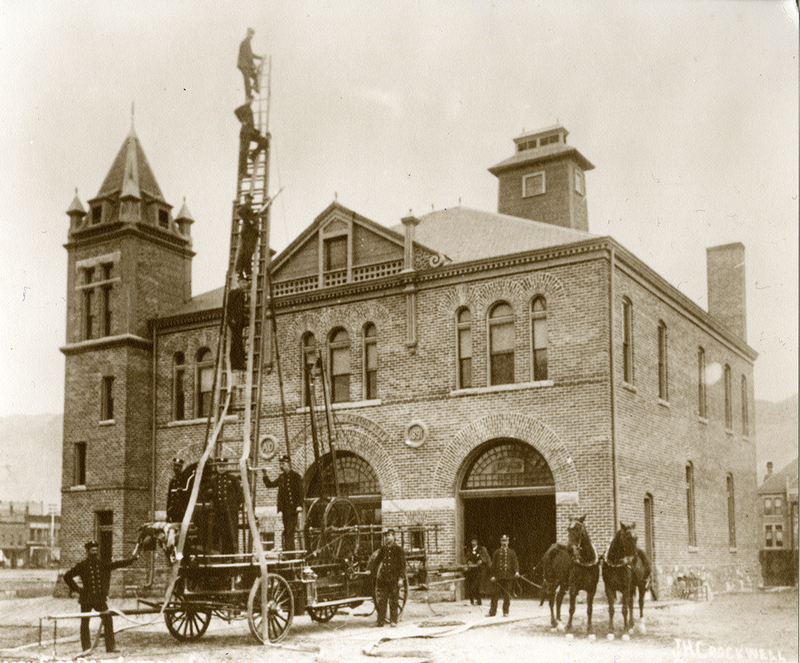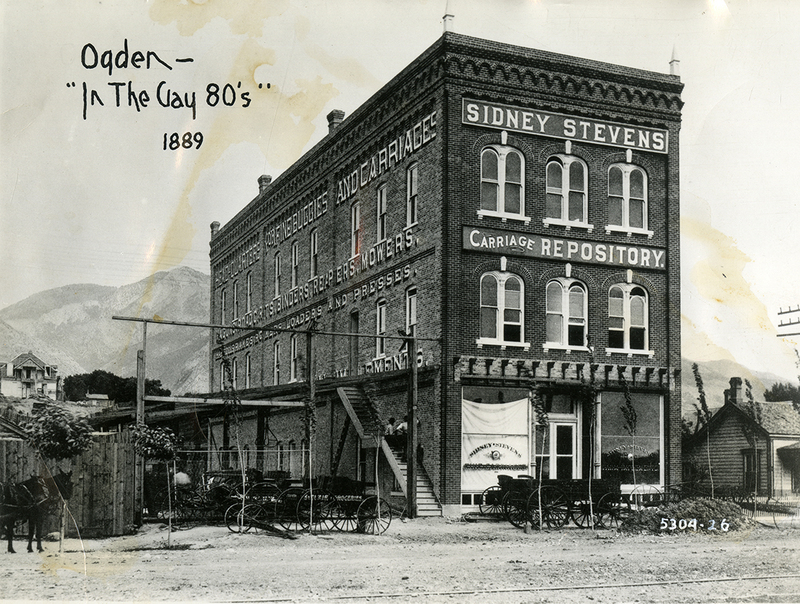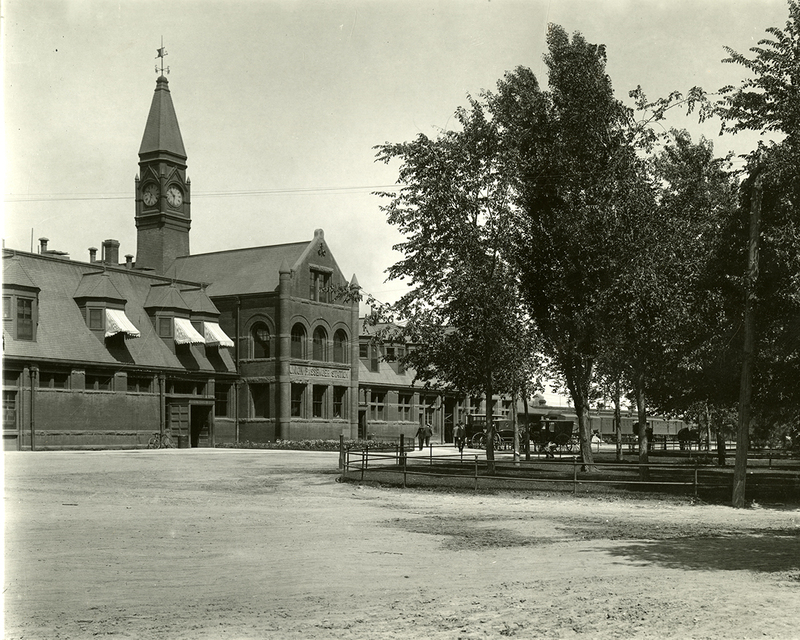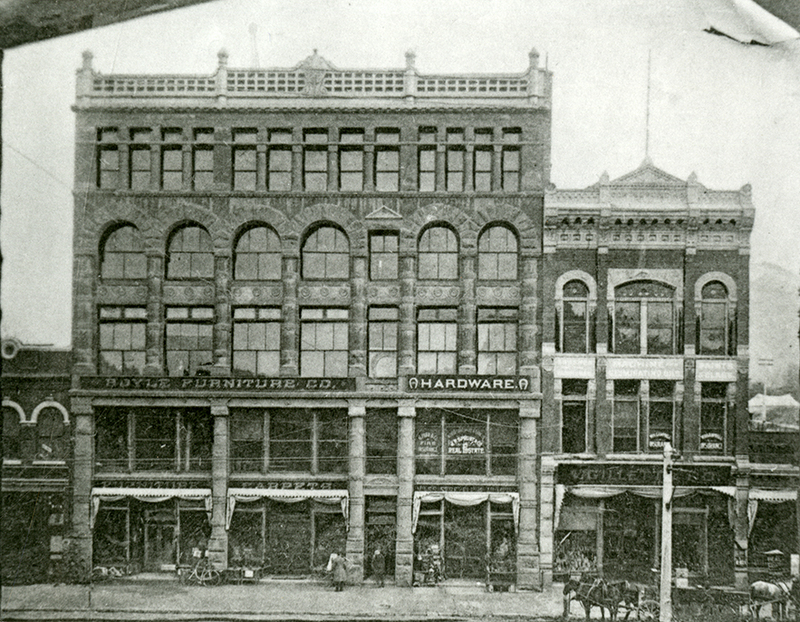Pullman Riots, 1894
In early 1894 the American Railway Union (ARU) went on strike against the Pullman factory in Chicago, demanding higher wages and better treatment. When this strike failed, they organized a national strike in June, refusing to work on any train that carried Pullman passenger cars.
In Ogden, all the Union Pacific switchmen and yardmen joined the strike, and shipment and car cleaners followed soon after. Railway traffic in the West nearly ground to a halt. By July 1 mail trains and over 350 passengers were stranded in Ogden. The mayor issued an order for people to stay away from the station unless they had business there, and vowed to punish acts of violence.
On July 4, strikers stopped a Saltair excursion train, and police arrested fifteen strikers, including the ARU president. Three days later a small riot occurred when the first train in several days appeared. Strikers tried to pull O’Neil and Hamilton, the train engineer and fireman, out of the cab. Hamilton was dragged out and beaten by a mob of 150 strikers. Ogden deputies arrived to break up the mob and took Hamilton to the city jail for protection.
Seven fires were lit across the city on July 8, causing $100,000 in damages to local businesses. Prominent citizens and businessmen vowed to patrol the town, looking for any further fires. The citizens blamed the strikers for the fires, but the strikers denied any involvement in the arson. They claimed they would have burned railroad property before businesses and residences. Their fight was with the railroad, not the town they called home. Despite their denial, the governor sent soldiers from Fort Douglas to Ogden.
At the strike’s peak, 250,000 workers in 27 states joined the fight, but by July 13 it was all over. President Grover Cleveland won a court order to end the strike, but when the ARU refused to comply, Cleveland send the U.S. Army to Chicago to get trains moving again. ARU leaders were arrested and sent to prison. Despite their failure, the Pullman Strike became an important event in U.S. labor history.



